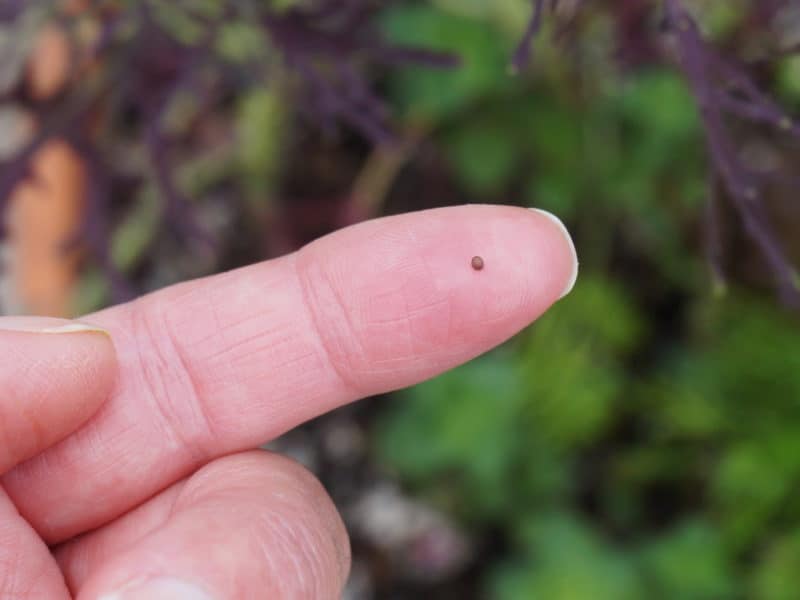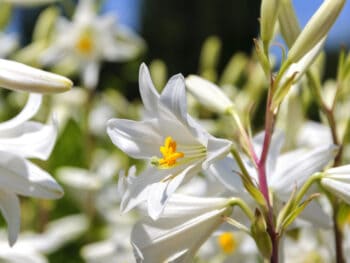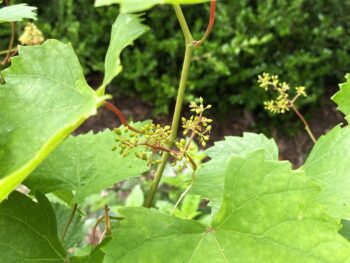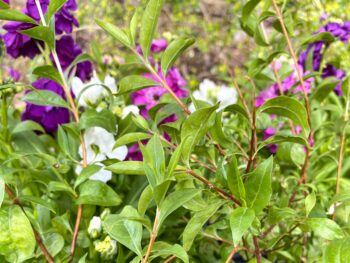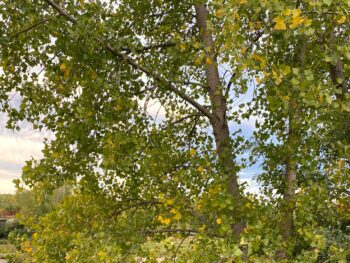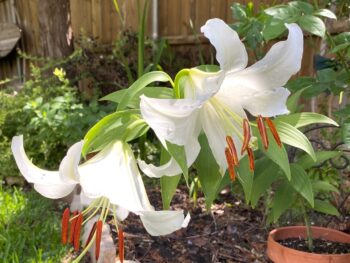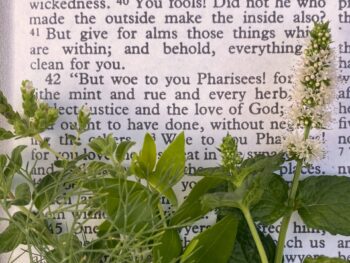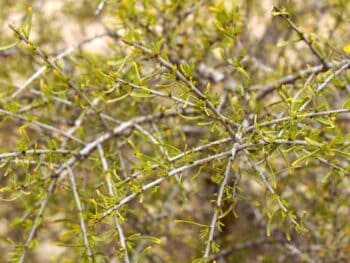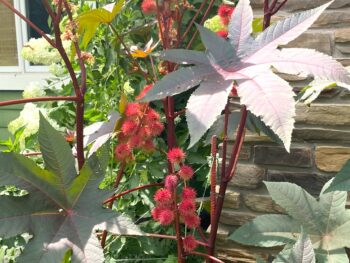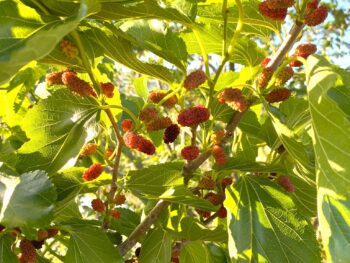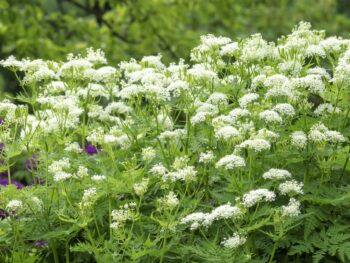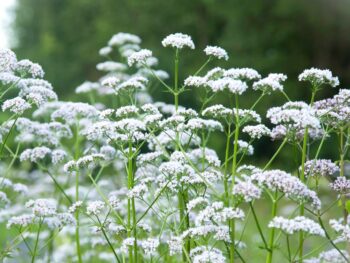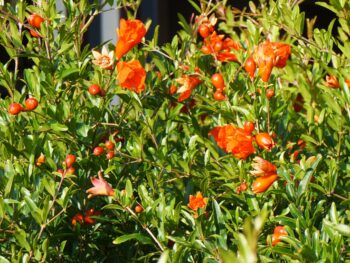 “Plant a Pot of Bible” is a series of devotions that go along with planting some of the herbs, spices, and edibles scattered across the pages of the Bible in our own garden pot. By the end of the series, we hope for a deeper understanding of who God is and what He has done…along with a beautiful and tastily planted container for early spring’s patio or lingering winter’s windowsill.
“Plant a Pot of Bible” is a series of devotions that go along with planting some of the herbs, spices, and edibles scattered across the pages of the Bible in our own garden pot. By the end of the series, we hope for a deeper understanding of who God is and what He has done…along with a beautiful and tastily planted container for early spring’s patio or lingering winter’s windowsill.
The Lord’s Possibilities
“Because you’re not yet taking God seriously,” said Jesus. “The simple truth is that if you had a mere kernel of faith, a [mustard] seed, say, you would tell this mountain, ‘Move!’ and it would move. There is nothing you wouldn’t be able to tackle.”
Matthew 17:20 The Message
What Pot of Bible would be complete without sowing mustard seeds?! The famed seeds were mentioned multiple times by Jesus, illustrating that no matter how miniscule the likelihood of something to happen, with God such impossibilities are possible. After all, the Jewish people, Jesus’ people, had impossible heritage, descending from a couple too old to bear descendants!
Then one of them said, “I will surely return to you about this time next year, and Sarah your wife will have a son.” Now Sarah was listening at the entrance to the tent, which was behind him. Abraham and Sarah were already very old, and Sarah was past the age of childbearing. So Sarah laughed to herself as she thought, “After I am worn out and my lord is old, will I now have this pleasure?” Then the Lord said to Abraham, “Why did Sarah laugh and say, ‘Will I really have a child, now that I am old?’ Is anything too hard for the Lord? I will return to you at the appointed time next year, and Sarah will have a son.”
Genesis 18:10-14 NIV
With God, nothing is too hard or beyond His power. With God, the barren are fruitful, the lost are found, the devastated are restored, the empty are filled, the desert is bloomed…all in keeping with the reminders we already planted…the sick are healed (chamomile), the covered-in-sin are washed clean (hyssop). The fact that we realize such needs and hope for them to be made right is second to the Lord already knowing our needs (nigella & cumin).
Planting Mustard
Gardeners, you may have noticed a little “kick” to growing mustard, not only in its bold flavored leaves and seeds, but in its quick burst to bloom with the slightest warmth in the weather. Surprise! What I thought would be a spring season of greens for salads and sandwiches has made a fast-break to a garden full of yellow flowers.
Once flowering has begun, leaf production slows and the crop begins retiring. Though there will be fewer leaves to eat, blossoms are edible (similar to broccoli florets) and make a bright sprinkle over salads and side dishes.

this Jesus, delivered up according to the definite plan and foreknowledge of God, you crucified and killed by the hands of lawless men. But God raised him up, having loosed the pangs of death, because it was not possible for him to be held by it.
Acts 2:23-24 RSV
While dazzled by the brilliant yellow display, you may in fact be watching next year’s takeover of your vegetable bed, surprise again! The seeds of these bolted flowers are broadcast in seemingly miraculous ways, a characteristic evident in whole fields of vibrant yellow, a manifest reminder that smallness powered by God can grow mightily.
Could it be any clearer? Our old way of life was nailed to the cross with Christ, a decisive end to that sin-miserable life—no longer at sin’s every beck and call! What we believe is this: If we get included in Christ’s sin-conquering death, we also get included in his life-saving resurrection.
We know that when Jesus was raised from the dead it was a signal of the end of death-as-the-end. Never again will death have the last word. When Jesus died, he took sin down with him, but alive he brings God down to us. From now on, think of it this way: Sin speaks a dead language that means nothing to you; God speaks your mother tongue, and you hang on every word. You are dead to sin and alive to God. That’s what Jesus did.
Romans 6:6-11 The Message
Plant a Pot of Bible
Plant mustard seeds at the “10 o’clock” position of our pot. Seeds are quick to sprout; thin them to one or two plants, wash up the rest of the sprouts and add to whatever’s for dinner. Alternatively, transplant a 4” seedling as I did.
My transplant is ‘Ruby Streaks’ (see sources below), a contrasting purple color to the rest of our pot’s foliage while echoing the lacy leaves of nigella & cumin. Though it promptly bolted in last week’s fair-weather winter, giving more “thrill” to the pot than I intended, stalks now 20” tall, surprise!
Read more on mustard in the devotions on Jesus’ Horticultural Parables in God’s Word for Gardeners Bible, in the Garden Stories section, pages a-44 & a-45
Find more garden-to-table information on growing mustard in our Plant Guide – www.gardeninDelight.com/plant-guide/mustard/
Sources:
Mustard varieties give us so many possibilities! Some are broad-leafed, and some are narrow or incised. Most are grass-green yet purple varieties are also available, my favorite. These are 3 of my recommendations (unpaid endorsements):
Botanical Interests ‘Ruby Streaks’, Irish Eyes Mizuna Mustard, Renee’s Garden Cut & Come Again Mustards
Photo Credits:
© 2016 Shelley S. Cramm
Bolted blossoms from my Texas garden
A Calistoga, CA vineyard alive with wild mustard flowers

